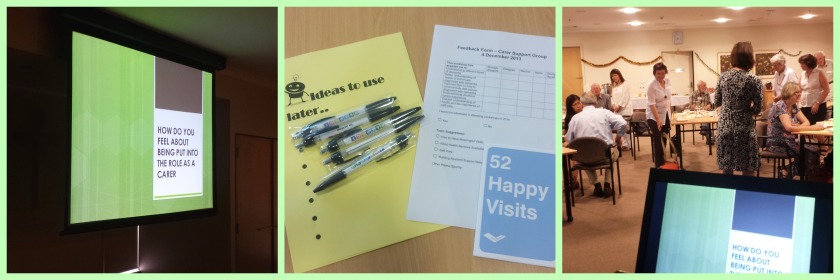As a registered psychologist, my long-term passion and objective is achieving better mental health outcomes in residential care. This area is often overlooked by other psychologists due to limited training and employment opportunities in the field, neglected by federal government and funding bodies and underestimated by general population. Research indicates that depression, anxiety and adjustment disorder are highly prevalent in residential care and exacerbated by poor physical health, social isolation and limited support network.
In 2010 I commenced delivering individual therapy for older people living in residential care. I soon learned that connecting residents to one another had better therapeutic outcomes than individual therapy alone. Connecting individuals is important and powerful for their self-esteem, sense of belonging and mental stimulation. Soon after, I developed content for psychology groups sessions in residential care [RESIST™ Resident Program]. Both old and new residents responded exceptionally well to the program, which has been recognised by NSW Health, Mental Health Commission and won a Positive Living in Aged Care Award. Last year, undergraduate and postgraduate psychology students assisted in co-facilitating the program and learning more about the emotional needs of older adults in residential care. The students reported the value of attendance and noted that their university training has not sufficiently prepared them to work with this population.
Yesterday the sessions resumed across three facilities in Sydney. I walked into the room of 93 year old Marion* and invited her to come to the session. Marion* said “I am miserable”. However, after I said that the session was about to commence she quickly got changed, put on her lipstick and soon enough was reading an exercise in the group session. She later commented “the group is interesting, it opens up your brain, as it has been down the drain a bit”. In yesterday’s sessions participants discussed the impact of memory loss, loss of independence and the importance of setting a goal. As Ron* said “I still have goals, my goal is to get on that bus next week for lunch outing – as they say never ventured, never gained”. A number of residents have formed friendships and connected with one another outside of the sessions, which was the overall objective of the groups.
The RESIST™ Resident Program is now available for licensing. It can be delivered at any aged care facility in Australia, with adequate support and training offered to the licensee. The program has been written so that it can be delivered by other allied health professionals and RACF personnel who do not necessarily need to have psychology training. Contact me to find out more.



